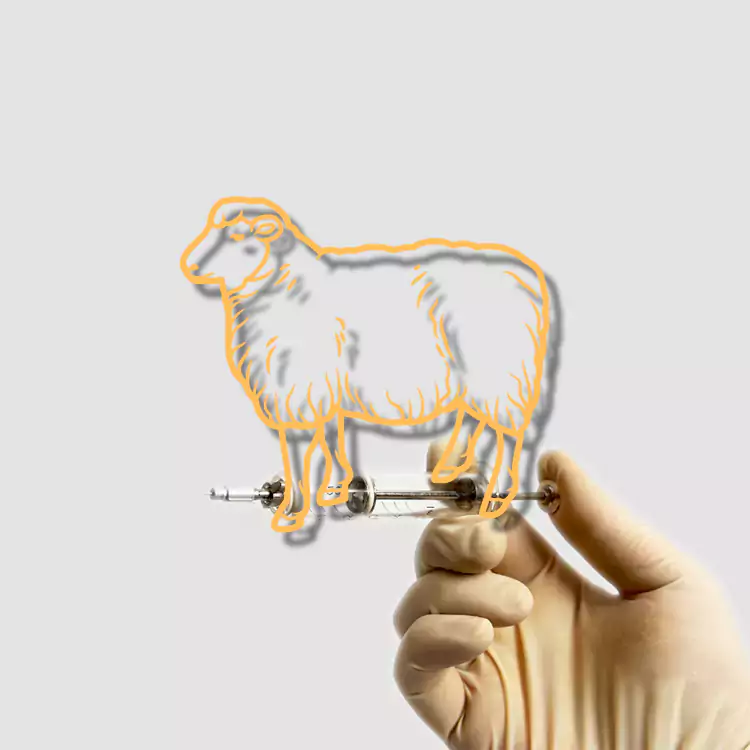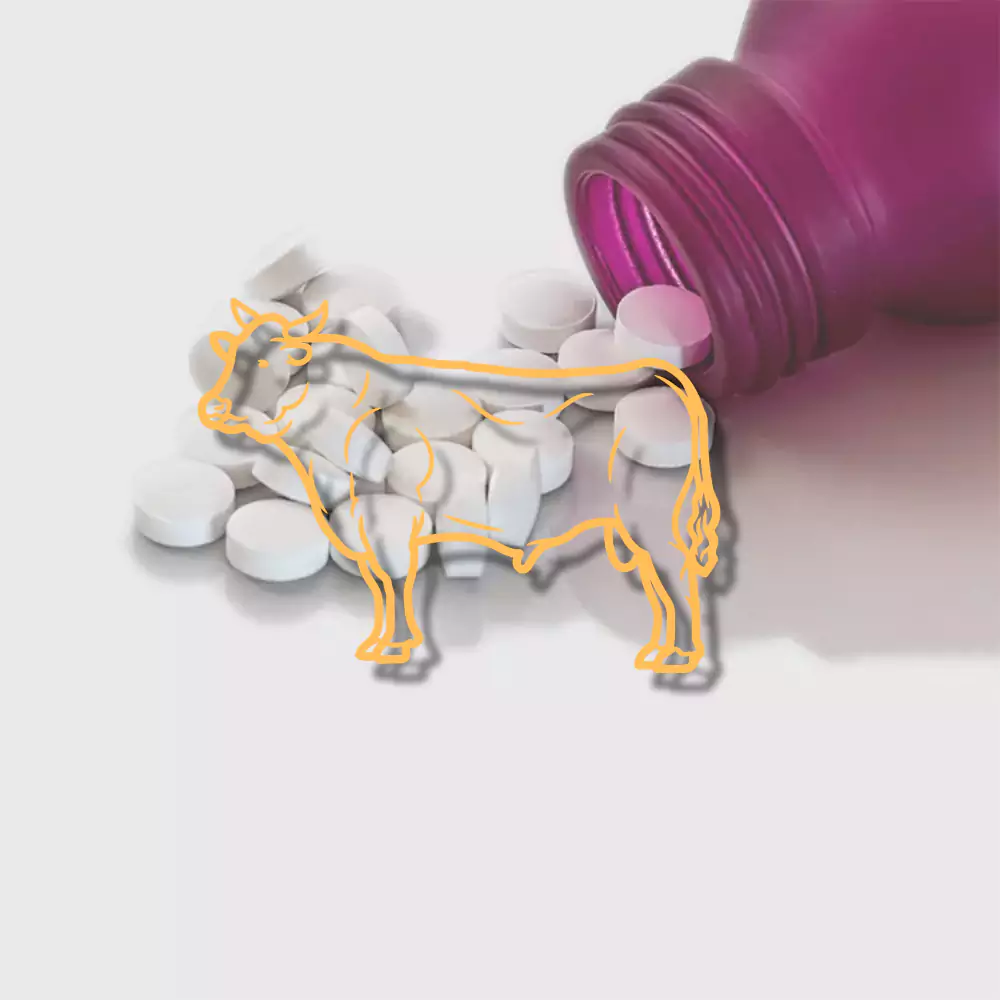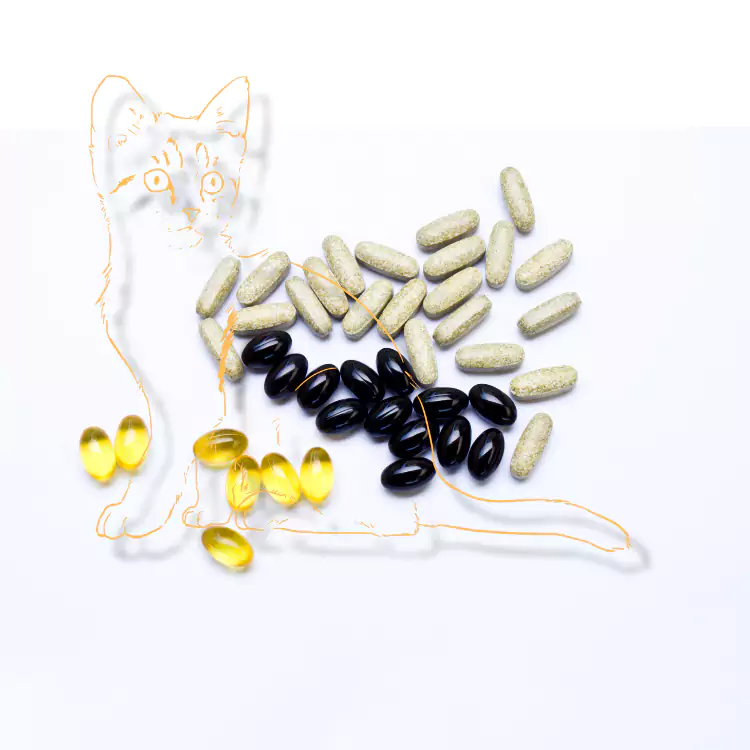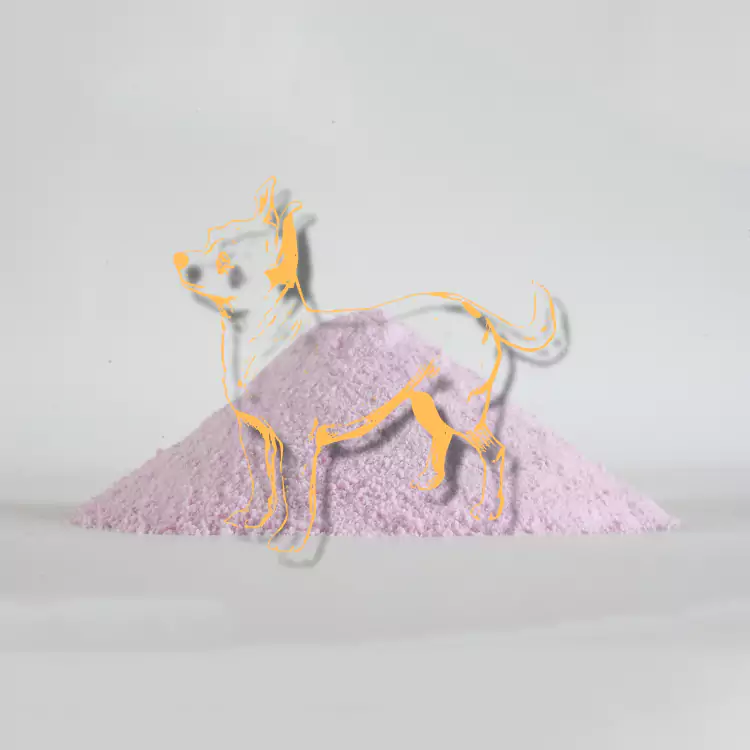What is the meaning of Veterinary Pharmaceuticals?
Veterinary pharmaceuticals are specialized medicines and treatments formulated for the prevention, diagnosis, and management of diseases in domestic and livestock animals. They maintain animal health, ensuring their well-being and productivity. Their use also upholds the safety of animal-derived foods for humans.
Veterinary medicines serve a dual purpose: they address health issues in animals and help maintain public health standards. These treatments span from combating infections, controlling parasites, to addressing genetic and breed-specific ailments in domestic and farm animals. The regular and judicious use of these drugs ensures that the risks of disease transmission to humans are minimized, especially given that many human diseases have zoonotic origins.
Medicine for animals, which includes veterinary injections, boluses, tablets, solutions, powders, and more, has evolved significantly with the progression of veterinary science. These specialized medications cater to a broad spectrum of health concerns, tailored to the unique physiology and needs of different species. Veterinary injections, particularly, offer rapid onset of action, making them invaluable in critical care situations where oral administration might be less effective or slower to act.
The industry has also recognized the increasing demand for precision in dosage and administration forms, leading to the introduction of varied modalities like veterinary powders and tablets. These forms often cater to preventive care or chronic conditions, allowing for easy integration into an animal’s diet or environment. Their versatility ensures that animal caregivers and breeders have a wide range of options, optimizing the health regimen of the animals under their care.
The advancement in veterinary medicine emphasizes the importance of responsible and ethical use of these medications. Veterinarians and animal caregivers are increasingly focusing on practices that minimize the development of antibiotic resistance, reduce the environmental impact of pharmaceuticals, and prioritize animal welfare. This approach involves accurate diagnosis, proper dosing, and adhering to recommended treatment protocols.
What are Veterinary Pharmaceuticals used for?
How are veterinary pharmaceuticals used?
Veterinary pharmaceuticals, more commonly referred to as veterinary medicines, are given to animals to prevent, treat, and manage diseases. Depending on the condition and type of animal, these medicines can be given orally, through injections, or applied topically. They play a crucial role in maintaining animal health and safeguarding livestock productivity.
How are resistance issues addressed in veterinary medicines?
Resistance, especially antibiotic resistance, is a growing concern in both human and veterinary medicine. For livestock, there’s a push to reduce the use of antibiotics as growth promoters and to use them strictly for therapeutic reasons. Regular monitoring, controlled usage, and alternative treatments are researched to minimize the emergence of resistant strains. Proper dosing and full courses of treatment are also emphasized to prevent resistance development.
Are there any side effects associated with veterinary medicines?
Just like human medicines, veterinary drugs can have side effects. The nature and severity vary depending on the drug, dosage, and animal species. Veterinarians often weigh the potential benefits against the risks before prescribing, and they provide guidance on what side effects to watch for and how to manage them should they occur.
How do veterinarians determine the appropriate dosage of medicines for animals?
Veterinarians take into account factors like the animal’s size, weight, age, and overall health when determining the appropriate dosage of medicines. They also consider the specific condition being treated and may adjust the dosage based on the animal’s response to the treatment.
Can veterinary pharmaceuticals be used across different animal species?
Veterinary pharmaceuticals are often formulated and tested for specific animal species due to variations in physiology and metabolism. It’s important to use medications intended for the specific species to ensure safety and effectiveness.
How are new veterinary pharmaceuticals developed and tested?
New veterinary pharmaceuticals undergo rigorous research, development, and testing processes. Initially, they are tested in labs and then in clinical trials, similar to human drug testing. The drugs must prove their efficacy and safety before receiving approval from regulatory bodies. The entire process ensures the new medicine is both effective for the targeted ailment and safe for the animal.
Can veterinary medicines interact with each other or with other treatments?
Yes, just like in human medicine, interactions between different veterinary medicines or between medicines and other treatments are possible. Some medicines can enhance or diminish the effects of others, or they might lead to adverse reactions when combined. Veterinarians are trained to consider potential interactions and adjust treatment plans accordingly to ensure the best possible outcome for the animal’s health.
How are over-the-counter (OTC) veterinary medicines different from prescribed ones?
Prescription veterinary medicines are typically more potent and are recommended for treating specific conditions diagnosed by a veterinarian. OTC medicines, on the other hand, are usually milder and used for general issues. It’s crucial to consult a veterinarian before using any medication to ensure proper diagnosis and treatment.




